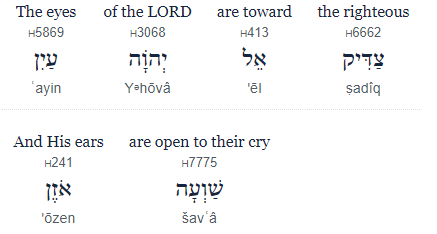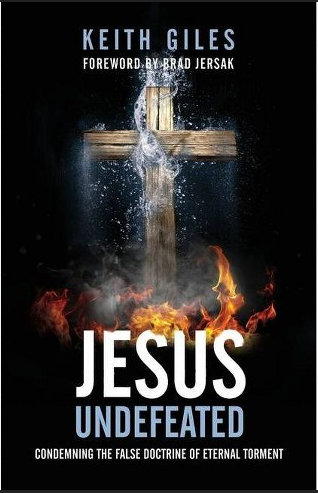Recently I have been in discussions with some friends that read my blog fairly consistently and they have, in an effort to understand my beliefs, baited me by calling me a universalist.
That is fair, since I may not have defined every specific teaching as they may want, most likely due to the fact I honestly haven’t come to a settled persuasion on some of the teaching they may ask about me.
Initially, as I have stated in previous posts, I was surprised with the number of passages that support an evangelical universal reconciliation teaching. Please do not think that this teaching is the same as the “all roads lead to heaven” teaching, which I consider to be blasphemous. There is only one way to the Father, and that is through the Lord Jesus Christ.
With this, I would like to begin delving into some of the New Testament passages Mr. Giles brought to my attention, for your consideration, edification and civil discussion.
Regarding the book itself, I read it in one sitting, not simply because it was under 200 pages, but that it was challenging my though process and I found it enjoyable reading. If this topic interests you, please pick up a copy. It is well worth your time.
Our ninth blog post will begin with Revelation 20:15
This outline is taken from pages 162 – 163 of the aforementioned book. I have simply added the verse referred to for the readers convenience.
Wicked are in the Lake of Fire
Revelation 20:15
And if anyone’s name was not found written in the book of life, he was thrown into the lake of fire.
Entrance to the Lake of Fire is based on your name not being found in the Book of Life.
Kindly note that the permanence of a name in the book of Life is not defined here. That is, there may be a condition that names are added to and or removed from the book of life. Or one other possibility is that all souls have their name ( a new name?) in the book of life, but that those who are in the Lake of Fire have not received their new name yet.
The giving of new names is not uncommon in the Word. Consider Abram, Jacob, Simon and Saul.
Either of these conditions may be possible
Revelation 21:8
But as for the cowardly, the faithless, the detestable, as for murderers, the sexually immoral, sorcerers, idolaters, and all liars, their portion will be in the lake that burns with fire and sulfur, which is the second death.”
Lost sinners will be in the Lake of Fire.
This is a fact stated clearly in the chapter we refer to. And yet, I do not see a reference to duration of time a lost soul suffers in this verse, unless the second death is interpreted as being eternal or everlasting. That is not clearly stated here, and we all know that the first death was not eternal or everlasting if God gets involved.
I would appreciate if someone could comment on the second death, and the duration being defined by way of a Bible passage.
They are outside the gates of the New Jerusalem
Revelation 22:14-15
Blessed are those who wash their robes, so that they may have the right to the tree of life and that they may enter the city by the gates.
Outside are the dogs and sorcerers and the sexually immoral and murderers and idolaters, and everyone who loves and practices falsehood.
Entrance to the city and the right to the tree of life is only for those whose robes are washed. This is the prerequisite of entering the city.
It is interesting that the verb in the first verse is in the present tense, as in “Blessed are those who wash…”, not “Blessed are those who have washed…”
The “nations of the earth” are the enemies who opposed Christ
Revelation 20:3, 7
and threw him into the pit, and shut it and sealed it over him, so that he might not deceive the nations any longer, until the thousand years were ended. After that he must be released for a little while.
And when the thousand years are ended, Satan will be released from his prison
Satan is thrown into the “pit”. This is not necessarily the Lake of Fire.
They are not allowed inside the New Jerusalem
Revelation 21:27
But nothing unclean will ever enter it, nor anyone who does what is detestable or false, but only those who are written in the Lamb’s book of life.
This truth was stated above, and is a reminder that only those who are redeemed may enter the New Jerusalem.
A river of Living Water flows from the Center of the City where the throne of the Lamb is.
Revelation 22:1
Then the angel showed me the river of the water of life, bright as crystal, flowing from the throne of God and of the Lamb
This verse implies the river flows from the center of the city to the outskirts. Granted that this is implied, yet a few verses later, we find that the trees planted beside the river are for the healing of the nations. Is this the same group that were deceived by Satan and were not redeemed? That are in the Lake of Fire??
All who are thirsty are invited to come and drink freely
Revelation 21:6
And he said to me, “It is done! I am the Alpha and the Omega, the beginning and the end. To the thirsty I will give from the spring of the water of life without payment.
Revelation 22:17
The Spirit and the Bride say, “Come.” And let the one who hears say, “Come.” And let the one who is thirsty come; let the one who desires take the water of life without price.
Check out Luke 16:24 to find out who is thirsty.
This is one of the great evangelistic verses found in the Word and yet it seems we are in the middle of two groups – the redeemed in the city, and the damned in the Lake of Fire. What are we to make of it?
The gates of the city are always open, and will never shut
Revelation 21:25
and its gates will never be shut by day–and there will be no night there.
The City of God will always show hospitality. As we are instructed in this life, so be it in the next!
The tree of Life bears fruit every month, and the leaves are for the “healing of the nations”
Revelation 22:2
through the middle of the street of the city; also, on either side of the river, the tree of life with its twelve kinds of fruit, yielding its fruit each month. The leaves of the tree were for the healing of the nations.
Remember it is the nations that are healed, and not the saints, for we have already been healed. Granted, as believers, we will partake of the tree of Life since the Lord Jesus is the source of all Life and the only true Tree of Life!
Again I ask why the trees provide fruit for the healing of the nations, if the nations who were deceived by Satan, are condemned eternally in the Lake of Fire?
The nations will walk by the light of the glory of God, and the Kings will enter into the city
Revelation 21:23, 24, 26
And the city has no need of sun or moon to shine on it, for the glory of God gives it light, and its lamp is the Lamb.
By its light will the nations walk, and the kings of the earth will bring their glory into it,
They will bring into it the glory and the honor of the nations.
Okay. The nations and the kings of the earth will enter the City.
Note that the verse does not state that some of the nations and some of the kings of the earth will enter the City. THE nations. THE kings of the earth. This is truly an amazing verse and worthy of considering the implications of this train of thought that the apostle John seems to be providing.
Only those whose name is in the book of life enter the city!
Revelation 21:27
But nothing unclean will ever enter it, nor anyone who does what is detestable or false, but only those who are written in the Lamb’s book of life.
Find your name in the Book of Life my friend. Look to the Savior for your Life, for He is all of Life and able to rescue the humble, giving grace to the one who comes to Him in faith.
He is good! Do not ignore His grace!
Thanks again for coming to visit. I hope you found something of interest in this post and would appreciate a comment, to begin a discussion.
Follow Considering the Bible on WordPress.com











































